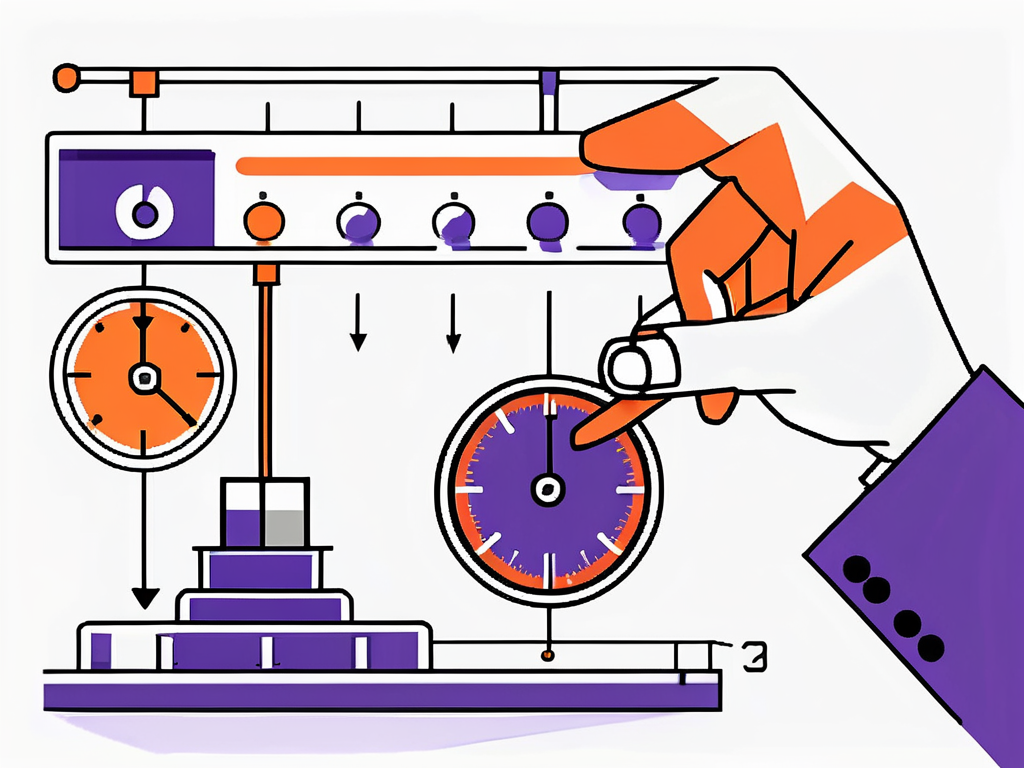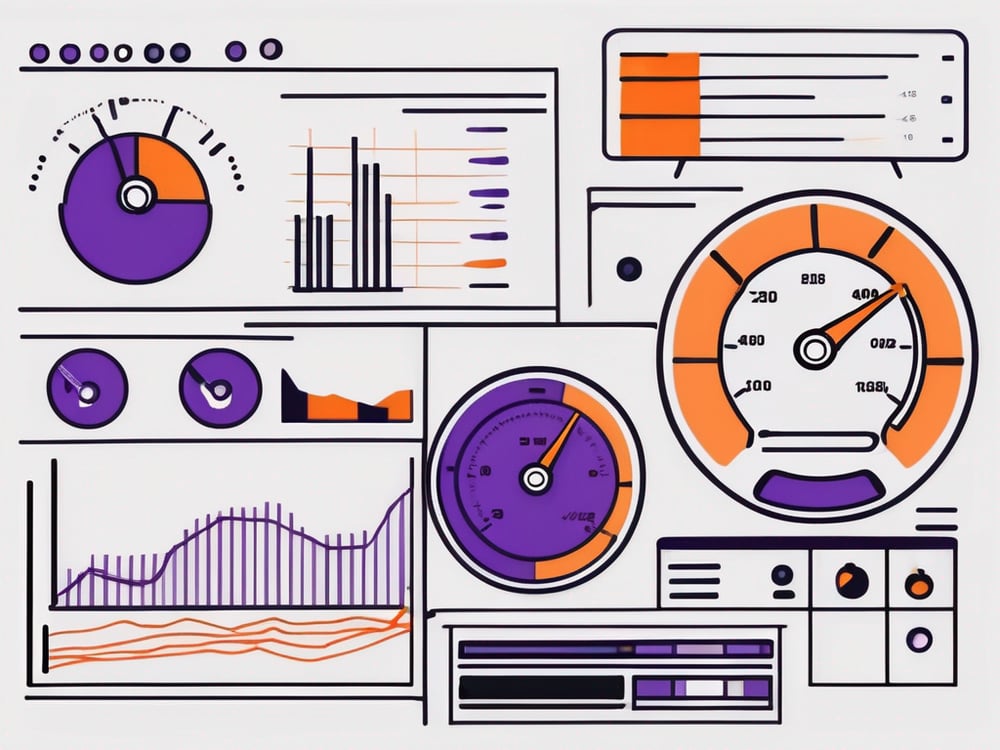Did you know that tracking key performance indicators (KPIs) in your third-party logistics (3PL) operations can significantly impact your business performance?
As the saying goes, “You can’t manage what you don’t measure.” In the fast-paced world of logistics, it’s crucial to have a clear understanding of the metrics that matter most.
That’s why we’re here to show you which KPIs have to be tracked to run a 3PL business successfully. Join us and learn:
- Essential KPIs for successful 3PL operations
- How KPI tracking enhances operational efficiency and customer satisfaction
- Methods for implementing and optimizing a KPI tracking system
- Common challenges in KPI tracking and strategies to overcome them
Table of Contents
Toggle3 KPIs You MUST Track as a 3PL Provider
Now that we understand the importance of 3PL KPIs, let’s discuss some of the key metrics you should monitor in your logistics operations:
1. Inventory Accuracy
Having accurate inventory records is crucial for efficient logistics operations. By tracking inventory accuracy, you can:
- Minimize stockouts
- Prevent overstocking
- Optimize order fulfillment
Regularly monitoring this KPI helps ensure that your inventory levels align with customer demand.
Moreover, maintaining high inventory accuracy can also lead to cost savings by reducing the need for emergency shipments or expedited handling to rectify inventory discrepancies. It can also help in forecasting demand more accurately, leading to better inventory management decisions and improved overall operational efficiency.
2. Order Accuracy
Order accuracy measures the percentage of orders that are fulfilled correctly and delivered without errors. A high order accuracy rate indicates efficient order processing and reduces the risk of returns or customer complaints. Tracking this KPI allows you to identify any issues in your order fulfillment process and take corrective actions.
In addition, a focus on order accuracy can enhance customer loyalty and retention. When customers receive their orders correctly and on time, it fosters trust in your brand and encourages repeat business. This KPI not only impacts operational efficiency but also plays a significant role in shaping the overall customer experience and perception of your company.
3. On-Time Shipping
Meeting delivery deadlines is crucial for customer satisfaction. By tracking on-time shipping, you can assess how well your logistics operations are performing regarding timeliness.
Late deliveries can result in dissatisfied customers and additional costs. By monitoring this KPI, you can proactively address any potential delays and improve customer experience.
Furthermore, maintaining a strong record of on-time shipping can give your company a competitive edge in the market. Timely deliveries not only meet customer expectations but also contribute to a positive brand image. Consistently achieving on-time shipping targets can help build a reputation for reliability and efficiency, setting your business apart from competitors in the industry.
The Impact of 3PL KPIs on Business Performance
Tracking 3PL KPIs not only provides insights into your logistics operations but also has a direct impact on your overall business performance. Let’s explore some of the ways in which KPI tracking can boost your business:

Enhancing Operational Efficiency
By identifying bottlenecks and areas for improvement through KPI tracking, you can optimize order fulfillment process. This leads to:
- Increased operational efficiency
- Reduced costs
- Improved bottom-line performance
Streamlining your 3PL operations allows you to allocate resources effectively and drive sustainable growth.
Improving Customer Satisfaction
When it comes to logistics, meeting customer expectations is paramount. Tracking 3PL KPIs enables you to identify potential pain points in your operations that may impact customer satisfaction.
By maintaining high KPI standards, you can ensure timely deliveries, accurate order fulfillment, and excellent customer service. Satisfied customers are more likely to become loyal advocates for your business.
Moreover, tracking 3PL KPIs can also help in fostering better relationships with your suppliers and partners. By monitoring key performance indicators, you can assess the effectiveness of your collaborations and address any issues proactively. This proactive approach not only strengthens your partnerships but also enhances the overall efficiency of your supply chain network.
Driving Continuous Improvement
Continuous improvement is a cornerstone of successful businesses, and tracking 3PL KPIs plays a crucial role in this process. By analyzing KPI data over time, you can identify trends, set benchmarks, and establish goals for further enhancement. This data-driven approach empowers you to make informed decisions, implement strategic changes, and adapt to evolving market demands effectively.
Implementing 3PL KPI Tracking
Now that you understand the significant benefits of tracking 3PL KPIs, let’s explore how you can implement an effective KPI tracking system:
Setting Up Your KPI Tracking System
Start by identifying the most relevant KPIs for your 3PL operations. Consider factors such as:
- Your specific business goals
- Industry benchmarks
- Customer expectations
Once you’ve determined the KPIs to track, establish a system that captures accurate and timely data. Leverage technology and automation tools to streamline data collection and analysis.
Furthermore, when setting up your KPI tracking system, it’s essential to involve key stakeholders from various departments within your organization. Collaborating with individuals from operations, finance, customer service, and IT can provide valuable insights into which KPIs are most critical for measuring overall 3PL performance.
By fostering cross-functional collaboration, you can ensure that your KPI tracking system aligns with the broader strategic objectives of your business.
Regularly Reviewing and Adjusting KPIs
KPI tracking is an ongoing process. Regularly review and analyze your KPI data to identify trends, patterns, and areas for improvement. Make data-driven adjustments to your logistics processes and KPI targets as needed. Continuously refining your KPIs ensures that they remain relevant and aligned with your evolving business objectives.
In addition to regular reviews, consider implementing quarterly or bi-annual KPI review meetings with key stakeholders.
These meetings provide a forum for in-depth discussions on KPI performance, challenges, and opportunities for optimization. By fostering a culture of continuous improvement through these structured review sessions, you can drive accountability and innovation within your 3PL operations.
Overcoming Challenges in 3PL KPI Tracking
While tracking 3PL KPIs offers numerous benefits, it comes with its own set of challenges. Let’s explore some common hurdles and how to overcome them:

Dealing with Data Accuracy Issues
Data accuracy is essential for reliable KPI tracking. Ensure that the data you collect is accurate and complete. Implement quality control measures to identify and resolve data entry errors. Regularly validate your data against external sources to maintain accuracy. By addressing data accuracy issues, you can trust the insights provided by your KPI tracking system.
One effective way to enhance data accuracy is by leveraging automated data collection tools and software. These tools can streamline the data collection process, minimize manual errors, and provide real-time updates on key performance indicators.
Additionally, conducting regular audits and data reconciliation exercises can further improve the accuracy of your KPI tracking system.
Managing KPI Tracking Costs
KPI tracking can involve costs related to technology, system implementation, and data management. Assess the costs associated with establishing and maintaining your KPI tracking system. Consider the long-term benefits and return on investment (ROI) of tracking KPIs. Optimize your KPI tracking processes to maximize efficiency and minimize costs while still extracting valuable insights.
Another cost-saving strategy is to explore cloud-based KPI tracking solutions that offer scalability and flexibility at a lower cost compared to traditional on-premise systems. By utilizing cloud technology, you can reduce infrastructure expenses, access real-time data from anywhere, and easily scale your KPI tracking system as your business grows.
Transform Your 3PL Operations with Effective KPI Tracking
3PL KPI tracking is a critical aspect of managing logistics operations. By monitoring key metrics such as inventory accuracy, order accuracy, and on-time shipping, you can optimize your logistics processes and boost overall business performance.
Implementing an effective KPI tracking system and overcoming common challenges will help you make data-driven decisions and drive success in the competitive world of logistics.






